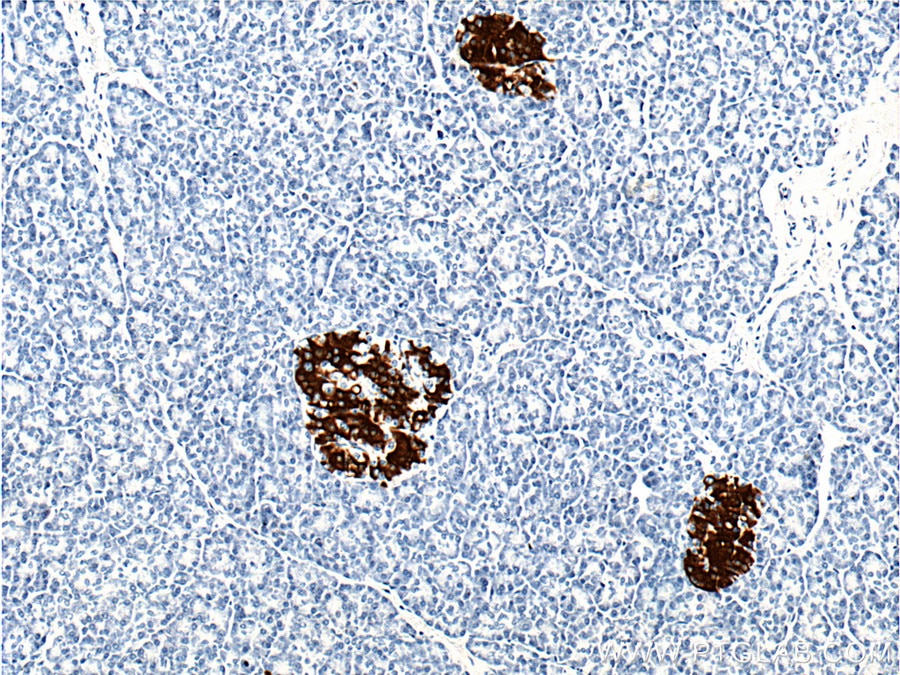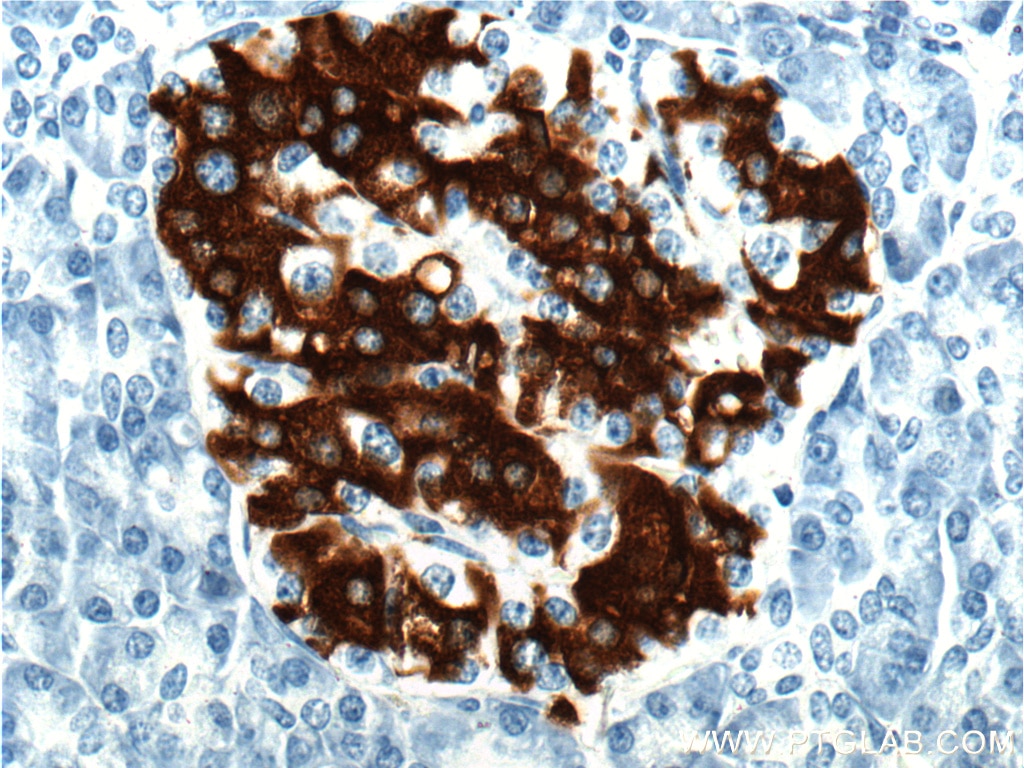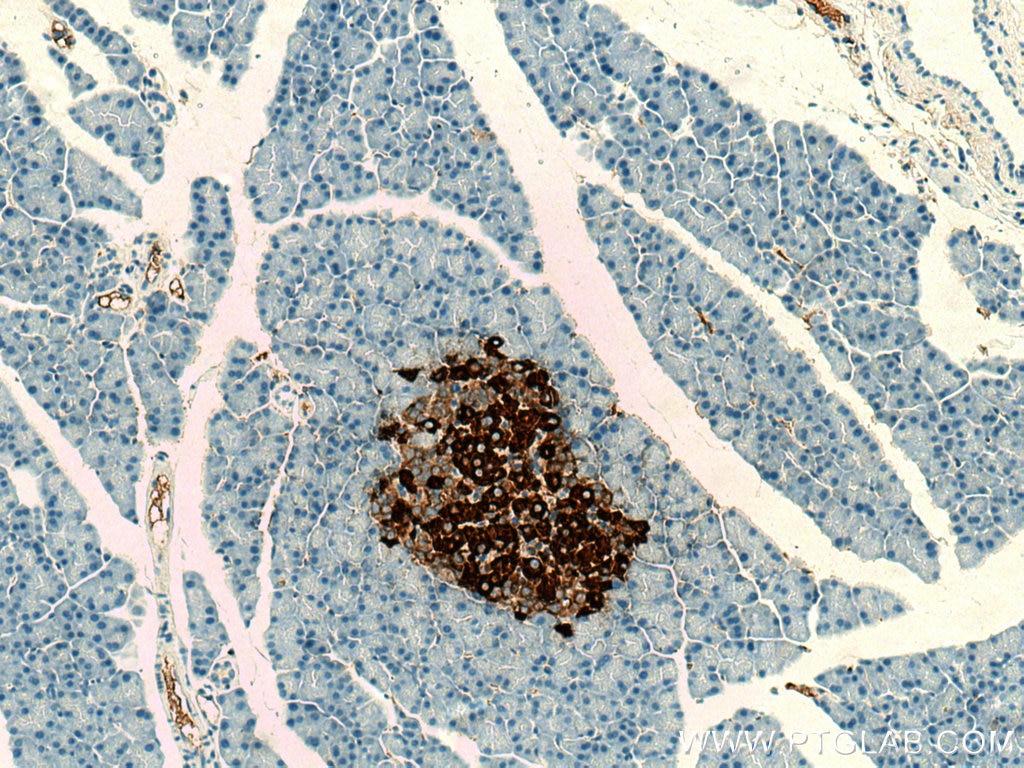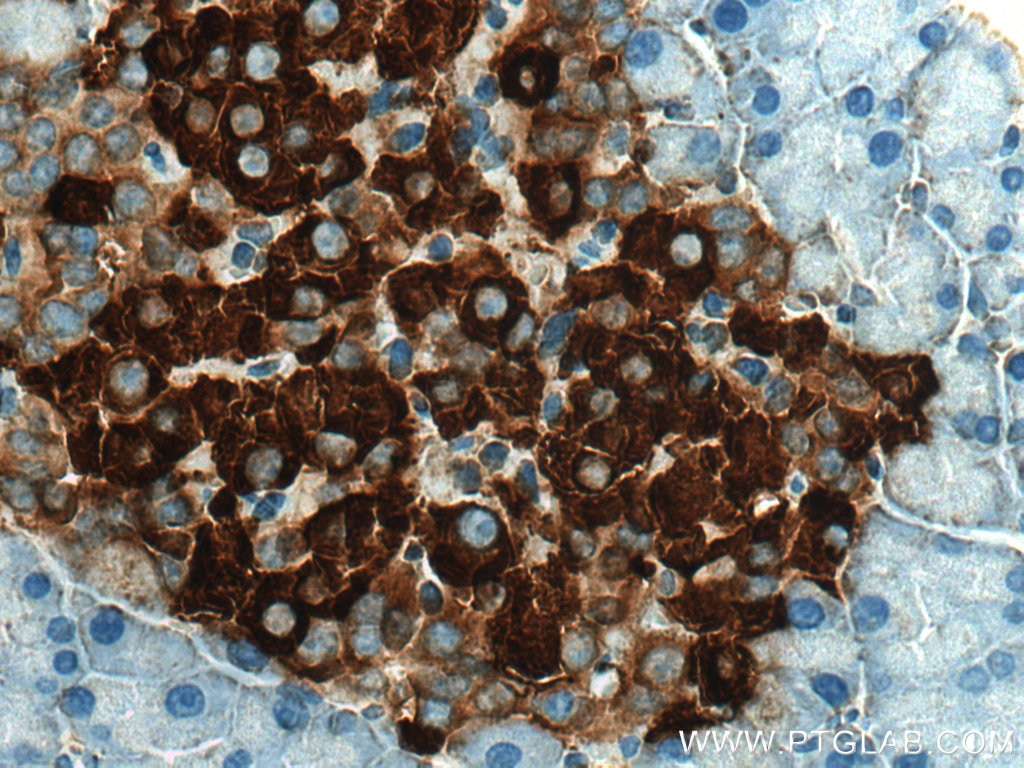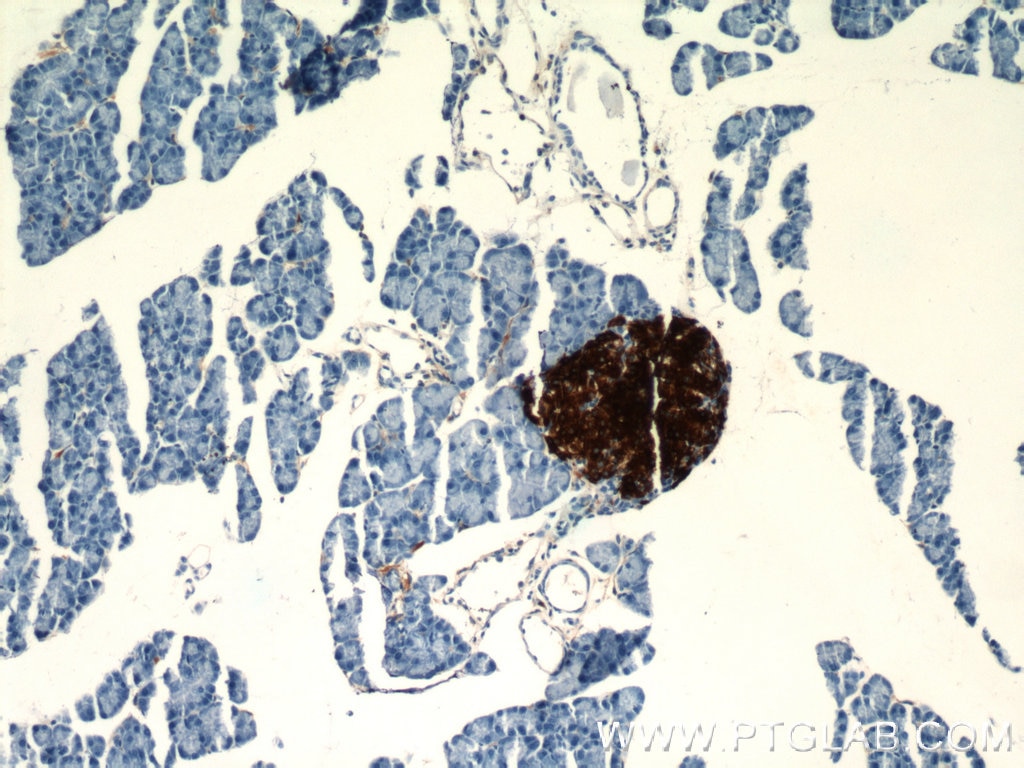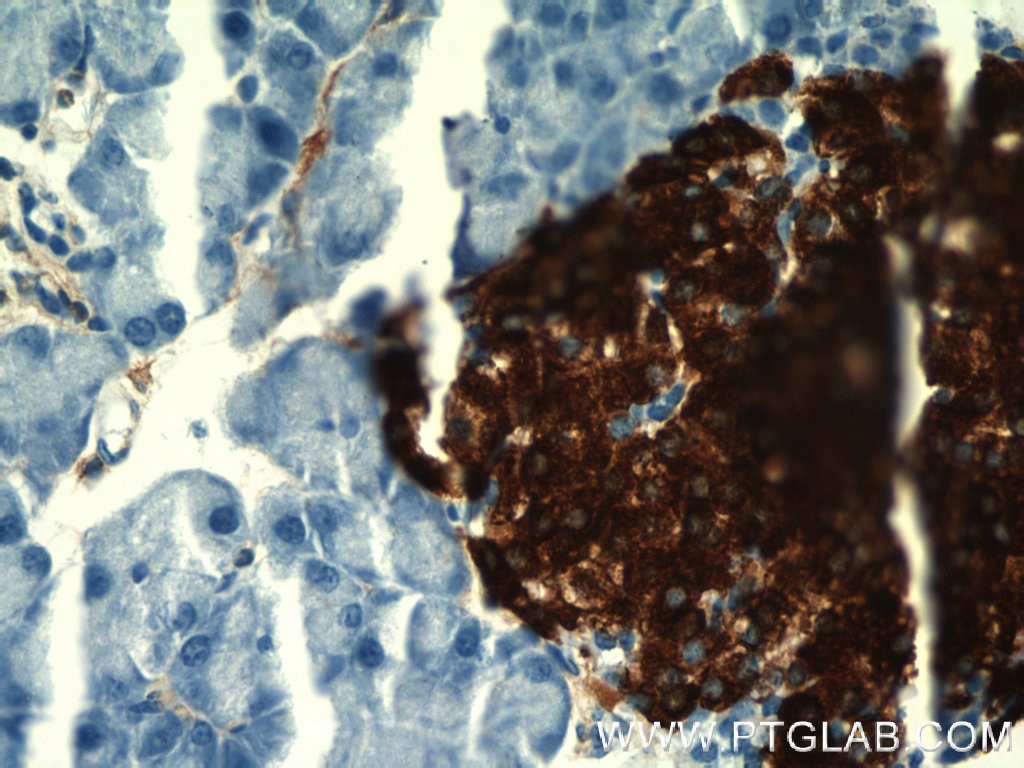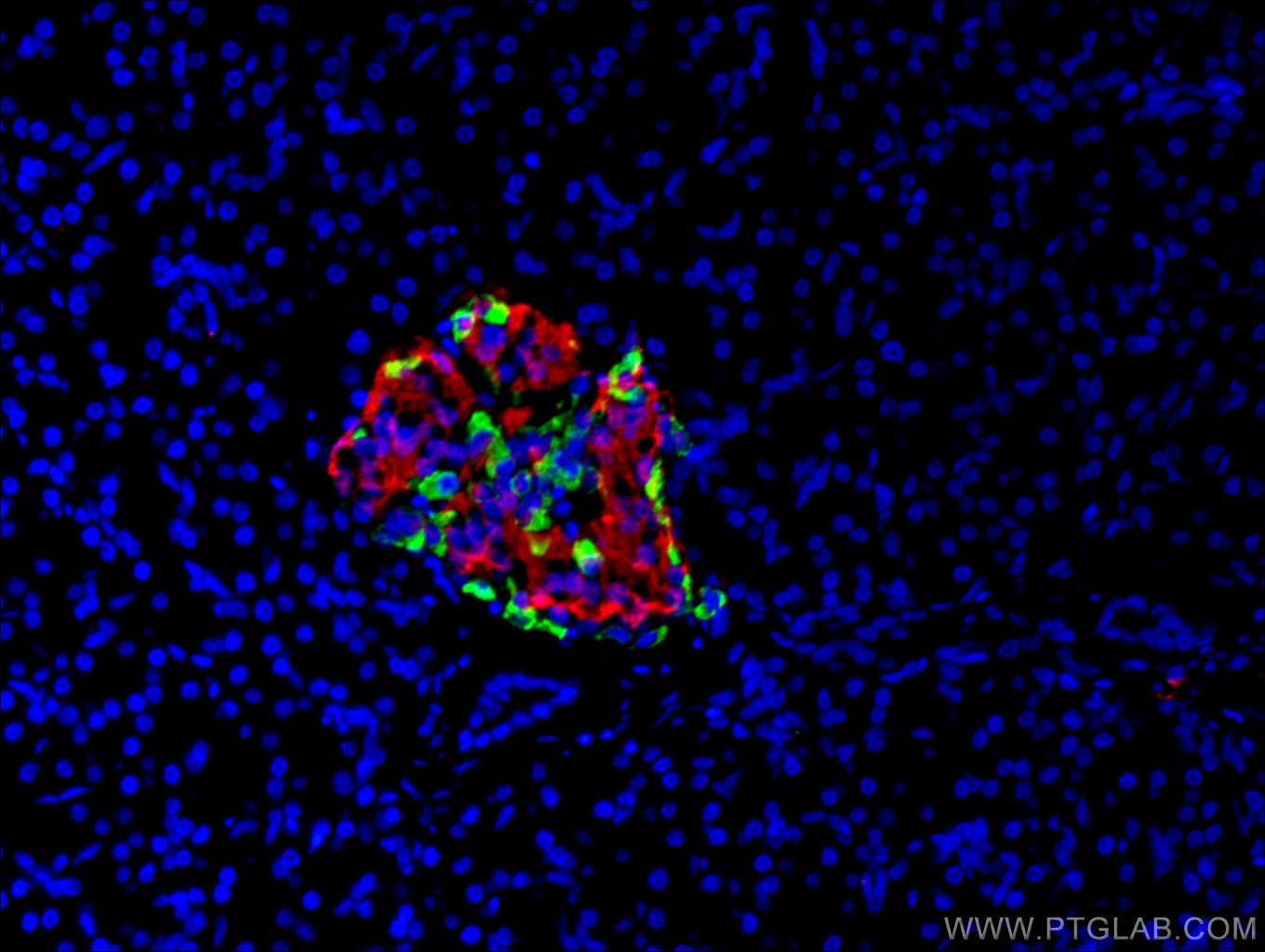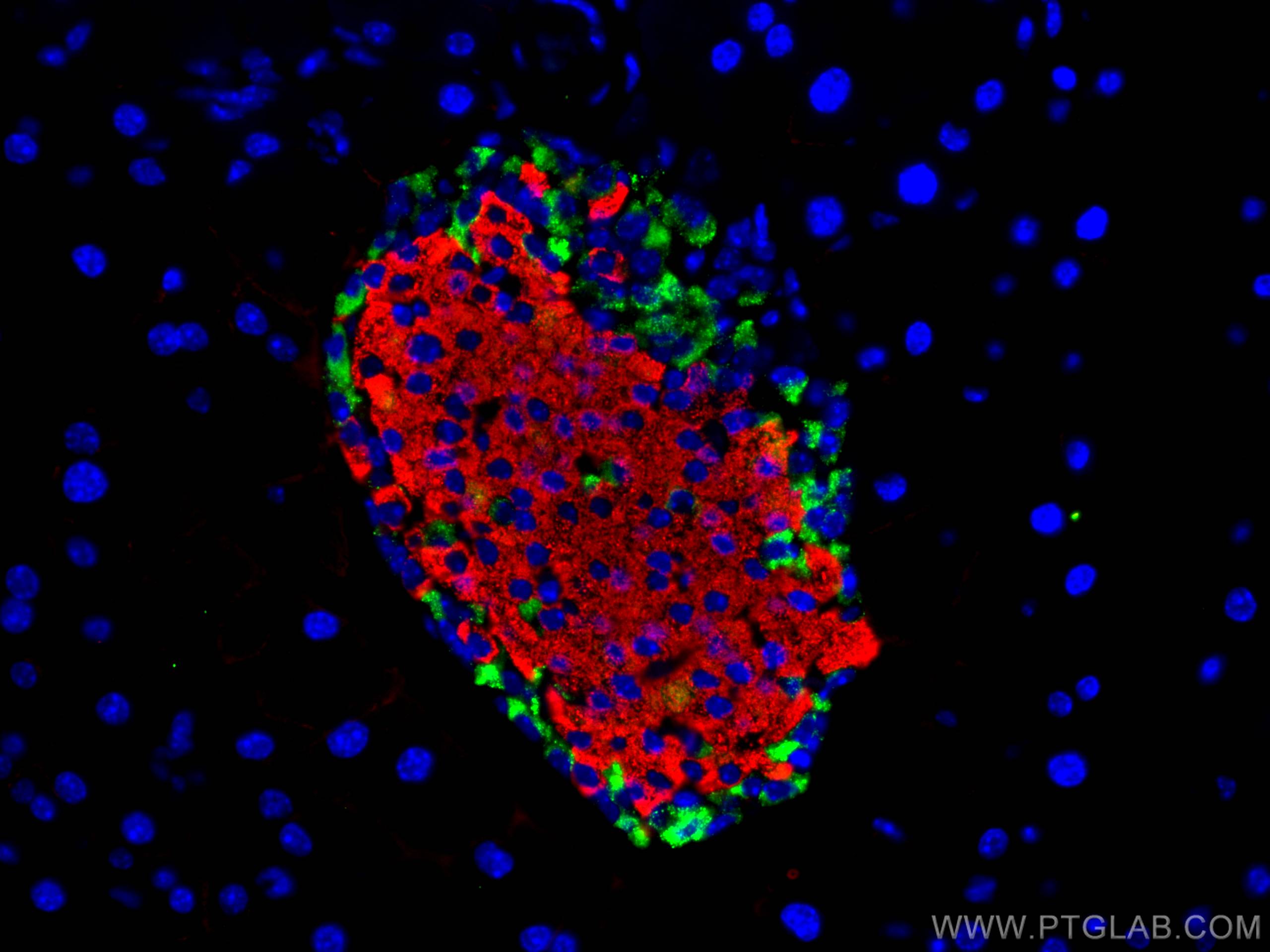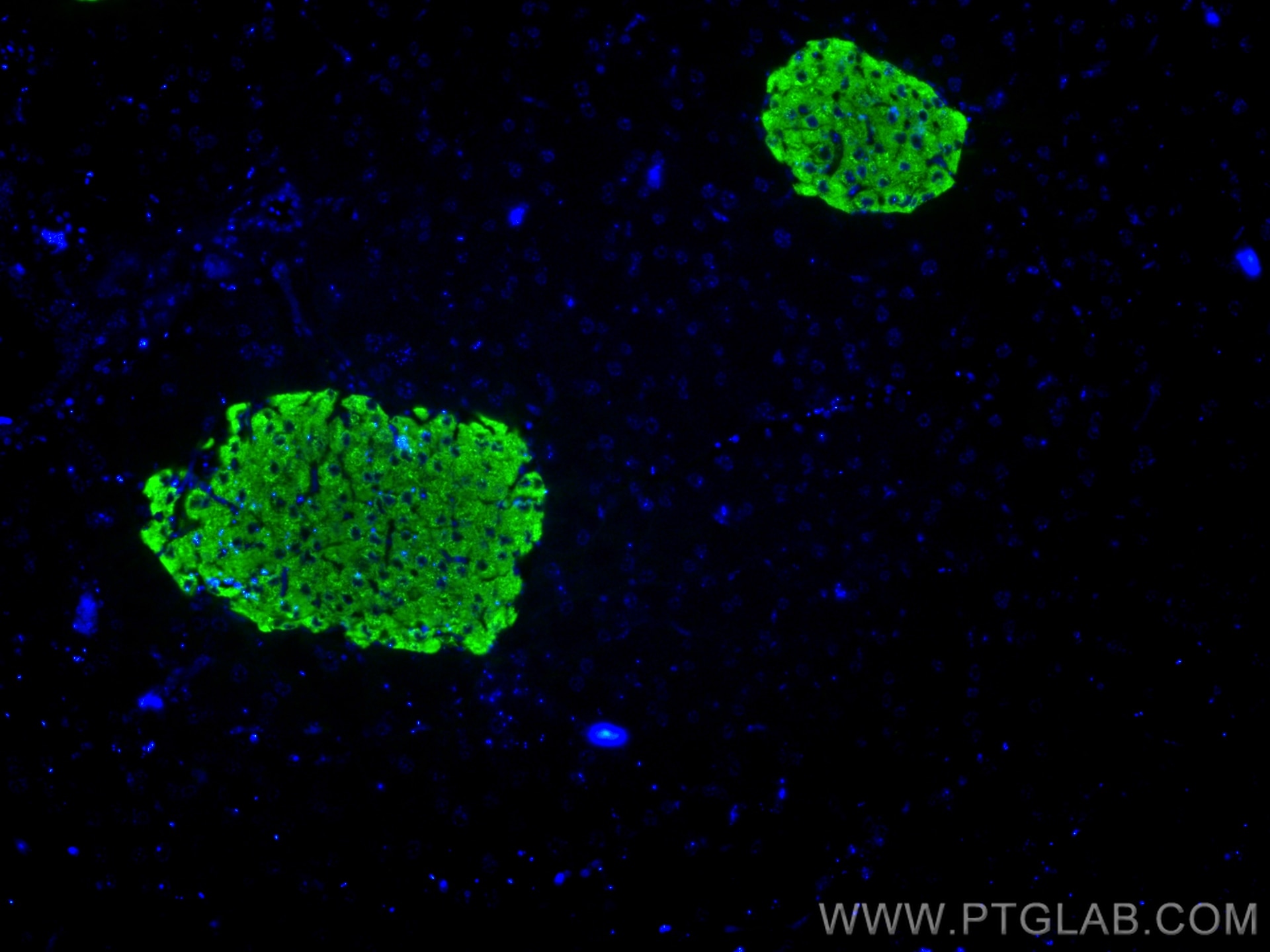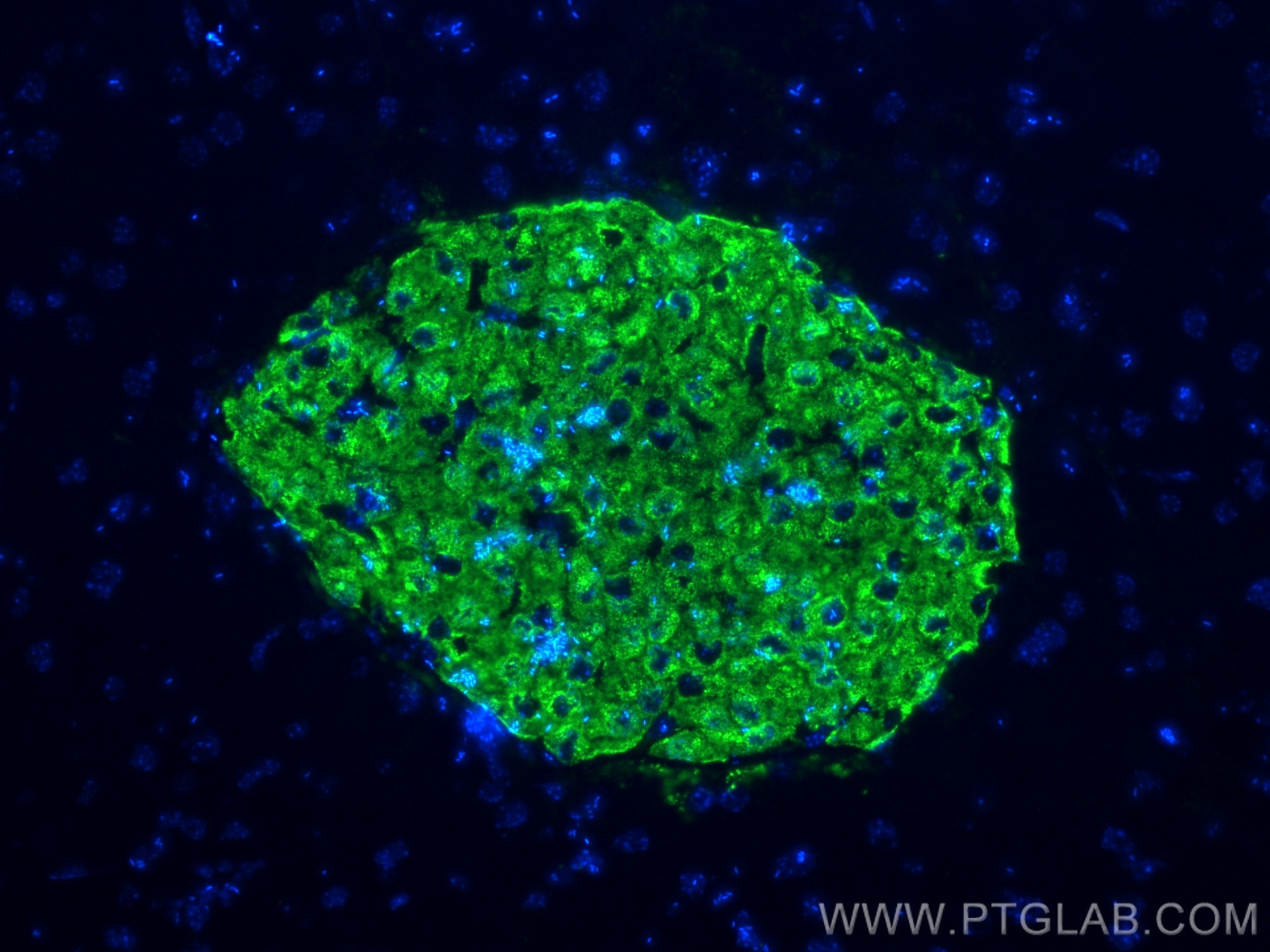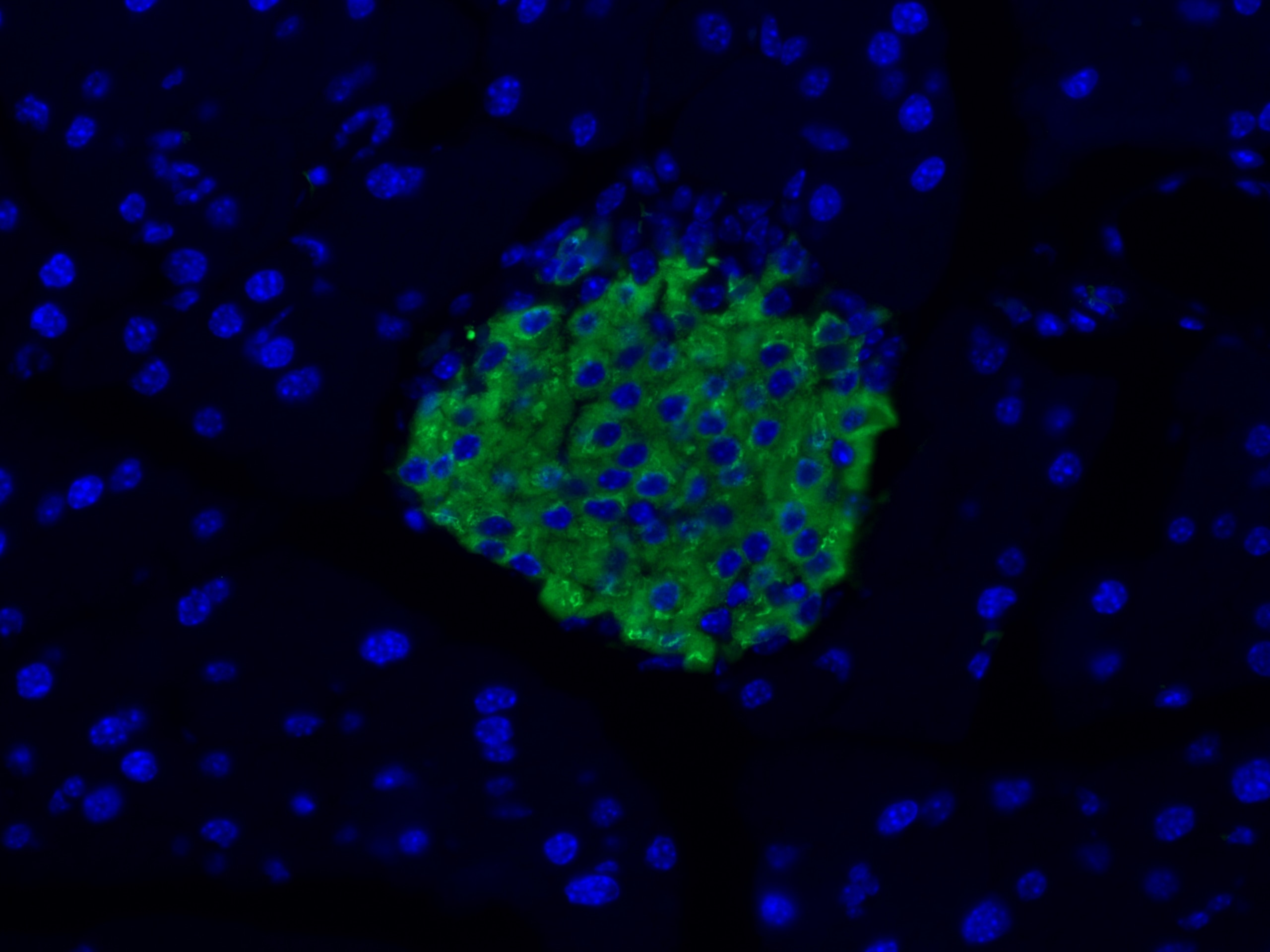Anticorps Monoclonal anti-INS
INS Monoclonal Antibody for IHC, IF-P, Indirect ELISA
Hôte / Isotype
Mouse / IgG2a
Réactivité testée
Humain, rat, souris
Applications
IHC, IF-P, Indirect ELISA
Conjugaison
Non conjugué
CloneNo.
4B6A7
N° de cat : 66198-1-PBS
Synonymes
Galerie de données de validation
Informations sur le produit
66198-1-PBS cible INS dans les applications de IHC, IF-P, Indirect ELISA et montre une réactivité avec des échantillons Humain, rat, souris
| Réactivité | Humain, rat, souris |
| Hôte / Isotype | Mouse / IgG2a |
| Clonalité | Monoclonal |
| Type | Anticorps |
| Immunogène | INS Protéine recombinante Ag8630 |
| Nom complet | INS |
| Masse moléculaire calculée | 110 aa, 12 kDa |
| Numéro d’acquisition GenBank | BC005255 |
| Symbole du gène | INS |
| Identification du gène (NCBI) | 3630 |
| Conjugaison | Non conjugué |
| Forme | Liquide |
| Méthode de purification | Purification par protéine A |
| Tampon de stockage | PBS only |
| Conditions de stockage | Store at -80°C. 20ul contiennent 0,1% de BSA. |
Informations générales
INS is a peptide hormone, produced by beta cells of the pancreas, and is central to regulating carbohydrate and fat metabolism in the body. It participates in glucose utilization, protein synthesis and in the formation and storage of neutral lipids. INS is synthesized as a precursor molecule, pro-INS, which is processed prior to secretion. A- and B-peptides are joined together by a disulfide bond to form INS, while the central portion of the precursor molecule is cleaved and released as the C-peptide. Defects in INS results in type 1 diabetes mellitus. INS may also exist 36 kDa form corresponding to the hexameric INS form.
